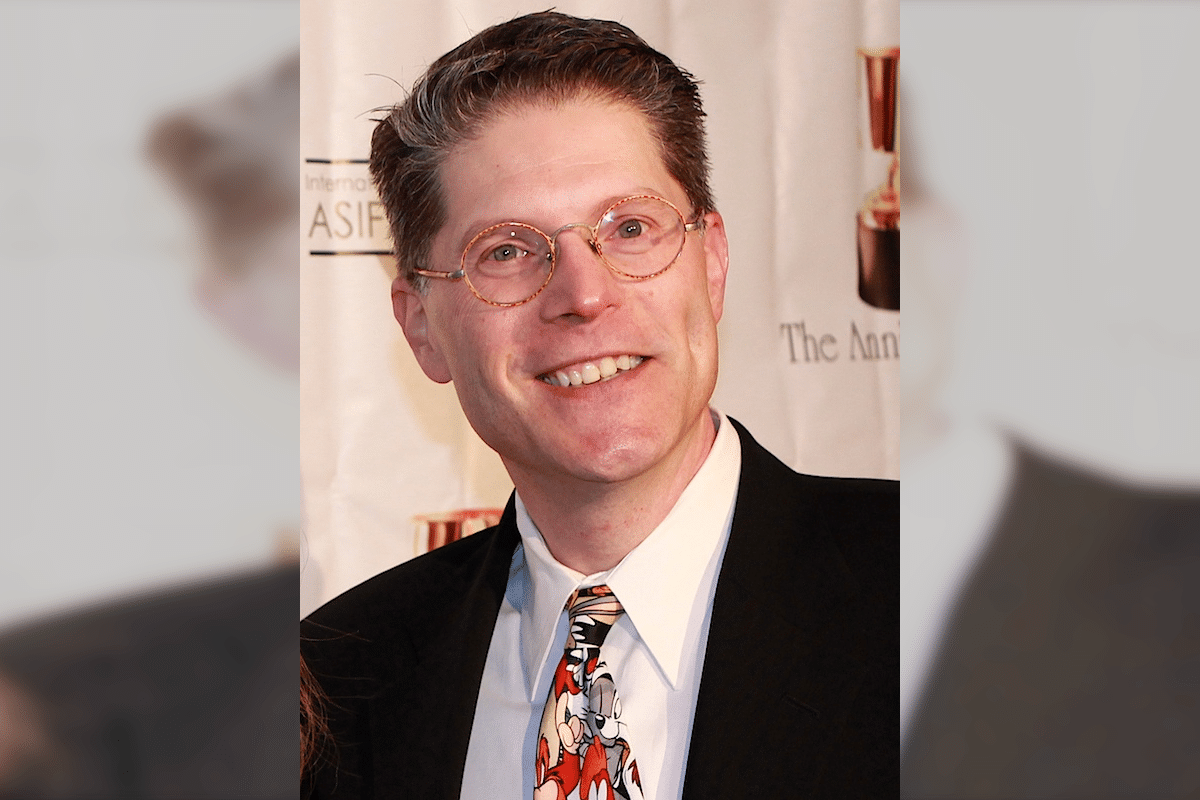Meet Bob Bergen, aka “Porky Pig,” “Luke Skywalker,” and “Marvin the Martian.” Bob is a professional voiceover actor.
For the past 30 years he’s honed his skills with legends like Daws Butler (Yogi Bear, Huckleberry Hound) and June Foray (“Rocky” from Rocky and Bullwinkle), while making appearances in top-grossing films such as Wreck-It Ralph, Wall-E, Toy Story 2, Monsters Inc., and Robot Chicken: Star Wars, not to mention a host of commercial work.
He’s received two Primetime Emmy nods and an Annie nomination, and as a veteran working voiceover actor he teaches the ins and outs of this oft-misunderstood craft to the next generation of upcoming voice actors in LA.
He was kind enough to chat about his experience and share his wisdom about the rapidly changing explainer video voice over industry with us that we’ll feature in a three-part suite about voiceover acting.
Below is the transcript:
IR: Most kids are so captivated by the action – the “magic” of animation in a cartoon that they never think about where the voices behind the characters come from, but you say you were bitten by the VO bug at a young age. When did you realize that the voices were so important and what initially drew you to voice acting – especially for animation?
BOB: I was drawn to the voices in the cartoons really young. I was five-years old. It was the Looney Toons cartoons. I would listen to the cartoons and for some reason I could figure there was one guy doing every voice.
And I would record cartoons. My mom would tell stories about how she’d be in the kitchen on a Saturday morning. I’d be in the living room watching cartoons, and she would hear a line on the cartoon and then she would hear the line again. And she found it odd that the cartoon repeated the same line. So she stood behind me and she watched me mimicking the cartoons back to the TV.
It was something I just got passionate about, but you know, kids get passionate. Some kids want to play baseball, some kids want to, uh, be a fireman, some kids want to be superman, you know, fantasy life. I wanted to be Porky Pig. I wanted to do voices for cartoons, and I had a talent for it. I was able to manipulate my voice.
IR: Obviously a huge part of voice acting is commercial – TV spots, announcements, radio, etc. How do Voiceover actors find the balance between their creative animation pursuits – like Porky Pig – and the realities of casting and making a name for themselves in such a commercially driven industry?
BOB: How do you find the balance? Well, um. Hmmm. It finds you.
A working voice actor’s life – even if you do a lot of cartoons – is going to be primarily commercials. For me it’s commercial narration, games, promo – I do everything but audio books. You basically go where the work is.
The auditions come in, you read for them, your agent calls you and says, “You’re booked on Thursday.” Thursday might be a cartoon. Thursday might be commercial, but you really don’t find the balance, the balance finds you, and this is why we have agents. They work the schedule. They balance your schedule so it all fits in.
IR: We work with a lot of freelance voice actors for our animation spots. Is freelance voice acting becoming a more legitimate alternative to landing an agent on either coast, especially with the improvement of home studio setups, or are most of the great gigs still going through casting agencies?
BOB: More people are pursuing voiceover than ever before but fewer are making the kind of living that the average working voiceover actor enjoyed 15 years ago, and that’s because of home studios.
Fifteen years ago the majority of the voiceover work was Los Angeles, New York, and Chicago. Today, anybody with a $99 snowball mic, Garage Band, and a walk-in closet has a recording studio.
There are online casting sites. The problem is, when I started out in this business (when everybody started out in this business of my generation) we were actors – you wanted to be an actor.
You didn’t necessarily want to get rich or make money at acting. Your need, your passion, your goal was to be an actor – and for me it was voice acting.
When the voiceover industry was in the major markets (New York, Los Angeles, Chicago) you trained. You studied. You studied acting.
I studied voiceover for four years. I did two years at an acting conservatory, three years of improv, then I was ready to go out there and compete and pursue.
But today, people get a snowball microphone, they have access to some online auditions, and they want to call themselves a competitive, working voice actor.
And they might. They might make money at voiceover, but their goal is to make money at voiceover.
To be an actor – to be an artist – if you’re a sculptor, if you’re a dancer, if you’re a musician – if you’re really an artist your goal can’t be the end result of making money. Your goal has to be the satisfaction you get from acting or performing.
If you’re fortunate enough to make a living at it – that’s icing on the cake.
If you look at the top actors in the business – the Meryl Streeps, the Pacinos, the Dustin Hoffmans – these aren’t people who said, “How can I make money acting,” but today because of this new generation of being able to pursue voiceover anywhere, people just want to make money at it and wonder why they’re not.
So, do you need an agent? Well it depends on what you want out of your career. Do you want to compete on a national level? If you’d like to do voices for cartoons – series or feature – you’ve got to pursue this in Los Angeles.
If you live in a farm town and you’re content getting $50 to do a local spot, or $500 to you is a lot of money to book a non-union spot, then, hey, great enjoy – have a good time. But to compete on a national level – yeah – you need more than just the online voiceover casting sites. You need a top agent. You need to be union – SAG-AFTRA.
Those of us who make a substantial living at this, and are at the level I’m at – don’t get me wrong; it’s not just about the love of the acting – after a while when you get to make a living at it, it is a business.
I’ve got health benefits. I’ve got a pension when I’m 65. I get residuals. I live off my residuals. When it’s slow as a voice actor – or any acting – you have residuals coming in all the time from past work. That is how the very successful actors really continue to be very successful – it’s those residuals they have coming in.




